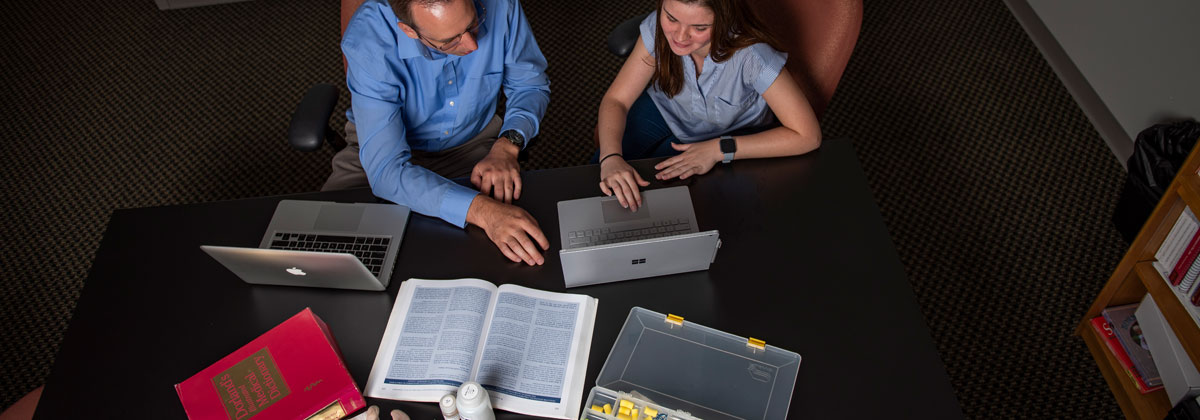- Hearing Conservation Center
- Research and Education

Hearing Conservation Center Research and Education
The research goal of the Hearing Conservation Center is to evaluate the association of medical and audiological testing to identify physiological pathways that play a role in acquired sensorineural hearing loss. We specifically collect genetic and audiometric data on participants. Other medical tests are evaluated through database research.
Research Locations
Audiology Lab
Our audiology lab is located in Wirtz Hall, room 314. We are equipped to perform the following tests in the audiology lab:
- Standard, extended-high frequency and speech audiometry
- Otoacoustic emissions testing
- Outer and middle ear screens
Genetics Lab
Our genetics lab is located in Wirtz Hall, room 312. It contains the equipment necessary for isolating DNA and preparing amplicons for sequencing.
If you have any questions about research in the Hearing Conservation Center, please contact our director, Charles Pudrith, at cpudrith@niu.edu.
Education Resources
The Hearing Conservation Center is home to the Virtual Reality Anatomy Resource Center. Here, we have an Oculus 2, which is used to support a program called 3D Organon. This program allows students to view an entire digital human body in three dimensions. The body includes the skeletal, muscular, vascular and nervous system, as well as major organs. All body parts can be digitally removed so that students can see where the parts are located. Students can also cast their work onto a computer so that they can work in groups.
Electronic Resources
We run analyses on publicly available databases with reported hearing loss. If you have any suggestions for databases for us to add, please email Charles Pudrith at cpudrith@niu.edu.
- Deafness Variation Database: provides a comprehensive guide to genetic variation in genes known to be associated with deafness.
- Hereditary Hearing Loss: lists all the identifications for monogenic nonsyndromic hearing impairment.
- gEAR: is a multi-omic visualization tool that analyzes gene and protein expression on the cellular level.
- AudioGene: is a learning algorithm that uses audiometric data to predict genotypes.
Contact Us
Hearing Conservation CenterWirtz Hall, Room 314
DeKalb, IL 60115
815-753-6246
hcc@niu.edu
Hours
Fall Semester
Thursdays: 9:30 a.m.-noon
Fridays: 8-10:30 a.m.
Spring Semester
Tuesdays: 9-11:30 a.m.
Fridays: 9-11:30 a.m.
Summer Semester
Closed